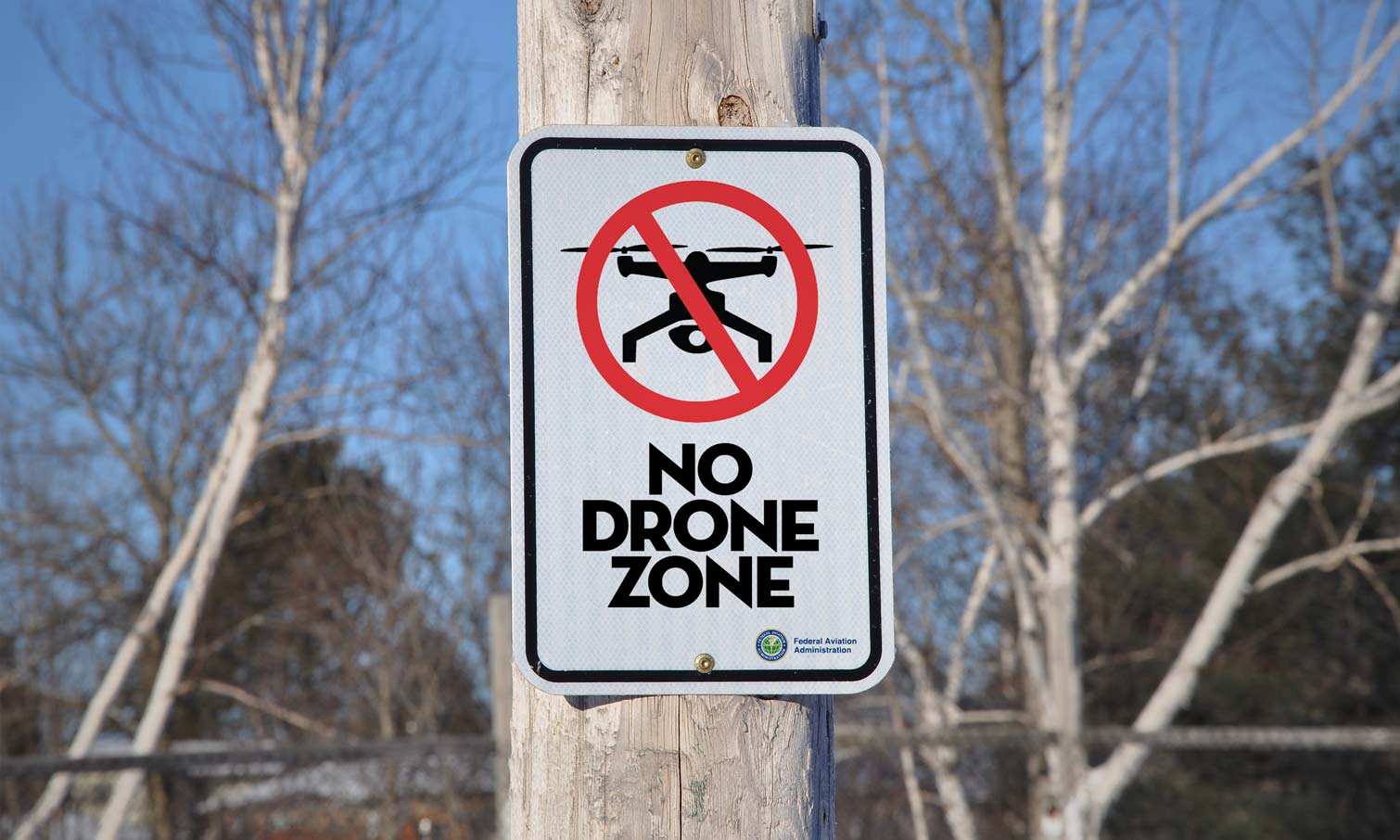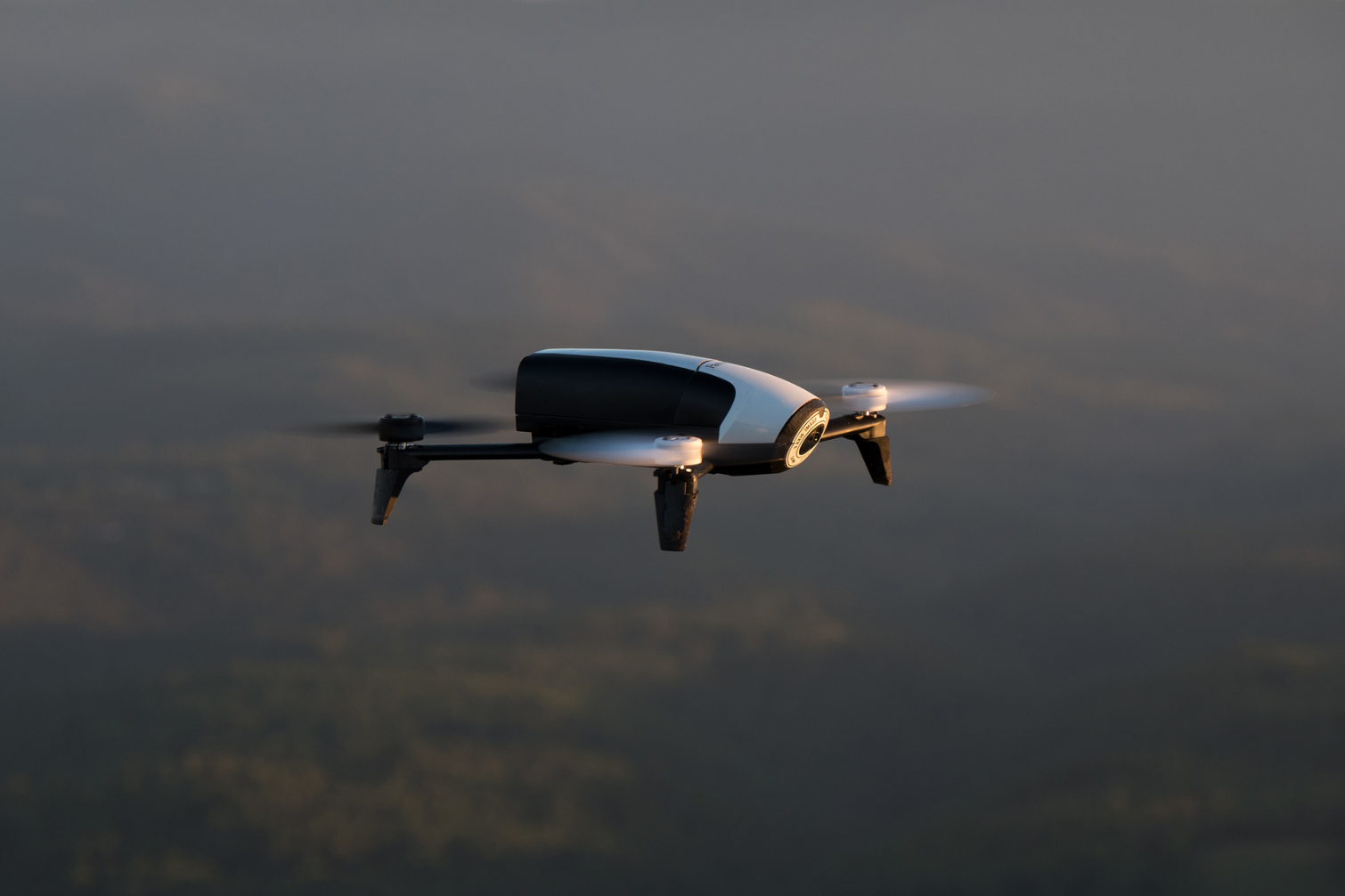What the FAA's Drone Rules Mean for You
The new rules mean you now have to register to fly a drone, and you might have to pass a written test.

Before you take to the skies for fun with your drone, you'll need to register with the Federal Aviation Administration. Any unmanned aircraft weighing less than 55 pounds, but more than 0.55 pounds (including all gear on board, such as cameras) must be registered. The FAA registration will cost you $5.
The FAA's registration task force — which includes drone makers, retailers, aviation officials and commercial pilots — was assembled in October to suggest rules for dealing with the increasing number of recreational drones flying around. The full report is available as a PDF.
MORE: Best Drones - Top Rated Quadcopters on the Market
Who needs to register?
U.S. citizens who are drone owners, who fly their unmanned aircraft outside for fun only, need to register with the FAA. Hobbyist registration is open to anyone over age 13, and commercial operators can register at 16. An individual's registration will cover all drones he or she owns, but your registration must be renewed every three years. You will be issued a registration number that you'll need to add to your drones before flying them.
You must register before using your drone outdoors, and you'll need an electronic or paper copy of your certificate of registration. If you borrow someone else's drone, you'll need to have proof of that drone's registration. If you sell your drone you'll need to remove the registration number.
Professional drones are not covered by these rules. The FAA's 624-page rulebook released today (June 21) are the first operational rules for businesses to fly drones in the U.S. These include similar requirements for drones weighing less than 55 pounds, but those pilots must also pass a written, unmanned aircraft operator test. These rules will take effect in late August.
What is being registered?
Owners of such hobby enthusiast drones as the Parrot Bebop 2, DJI Phantom 4 or 3D Robotics Solo need to start by visiting the FAA's Website to fill out the online form. It will require the owner's name physical address, mailing address and email address. You will not be required to enter make, model or serial number of your drone or drones.
Who will see my registration information?
That's a source of some controversy. Forbes contributor John Goglia says that a legal filing by the Department of Transportation suggests that anyone would be able to use a registration number to look up the name and address of a pilot. And the FAA seemingly confirmed that suggestion, telling Goglia "When the drone registry system is modified to permit public searches of registration numbers, names and addresses will be revealed through those searches."
Which drones need to be registered?

All drones that have a takeoff weight of more than 8.8 ounces (250 grams, 0.55 pounds) and less than 55 pounds need to be registered. Takeoff weight includes batteries and any other components required for the drone to fly. To put that in context, the Parrot Bebop 2 — a lightweight drone unveiled last week that will sell for $550 — weighs 17.6 ounces, so it would need to be registered. However, the Blade Nano QX 3D, a very light drone that costs less than $80, weighs less than an ounce, so it would not need to be registered.
Why is the cutoff connected to weight rather than function?
The task force decided to base the requirements on weight rather than function because of the lethal potential of larger drones. After analyzing what weight would likely seriously injure or kill someone if they were hit by it when traveling at speed, the group set the weight limit of 250 grams (about 8.8 ounces) for registration.
Do you need to pass a test to register?
Only if you're using the drone in a professional sense (wedding photographer, real estate agent, cattle rancher, insurance adjuster, private investigator, etc.). The rules for the general public suggest that there should be an educational aspect to the registration to encourage safe drone use, but there will be no test and no qualifications for hobbyists that registering, except being older than 13.
Commercial drone operators, who will need valid identification, will need to take a written, drone-specific, aeronautical knowledge test. Operators will need to be at least 16 years old, and to pass a background check by the Transportation Security Administration. Once passed, the registration would be good for 24 months.
Will this registration affect the function of drones? Are any types of drone banned or restricted?
Hobbyists and recreational pilots already face some regulations on where and how high they can fly. For instance, drones must not fly higher than 400 feet and must stay at least 5 miles away from an airport.
The rules do not cover the no-fly areas that many drones now support, where GPS is used to block flights near airports and restricted areas. There are moves to create a unified way that these systems will work (so the FAA or others can add new no-fly areas and store these on drones). However, we expect to see more developments in this area in the near future.
Commercial drones will still be prevented from flying over people or going out of the operator's visual line of site. This means Amazon and Walmart's plans for drone delivery are not green-lit yet. Professional drones are restricted to flying during daylight hours (unless you have lights on the drone that can be seen for up to 3 miles). Groups, such as firefighters or search and rescue groups, can apply for a waiver to be exempt from such limitations.
Previously professional drone use required a business to receive a special exemption from the FAA, which involved a complicated process that included getting a manned pilot's license. Since 2014, the FAA has granted more than 6,100 of those exemption; more than 7,600 requests are currently pending. The Association for Unmanned Vehicle Systems International estimates that opening up the commercial drone registration process will create 70,000 jobs and $13.6 billions in economic impact.
What are the penalties be for not registering?
Failure to register your drone could hold some pretty stiff consequences. The FAA may issue civil penalties of up to $27,500. From a criminal standpoint, you could be fined up to $250,000 and/or put in jail for up to 3 years. Some 700,000 to 1 million drones were sold during the 2015 holiday season.
Sign up to get the BEST of Tom's Guide direct to your inbox.
Get instant access to breaking news, the hottest reviews, great deals and helpful tips.
Richard Baguley has been working as a technology writer and journalist since 1993. As well as contributing to Tom's Guide, he writes for Cnet, T3, Wired and many other publications.
